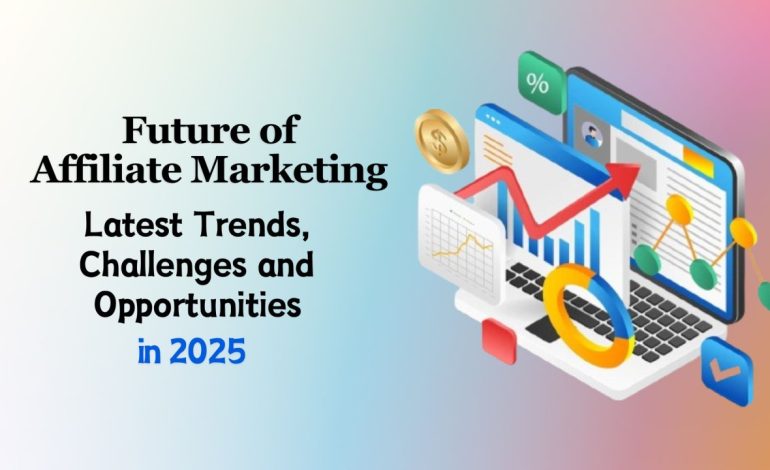How Do I Sell Products Quickly in Affiliate Marketing?

Affiliate marketing is a powerful way to earn money online by promoting other people’s products. However, the challenge many marketers face is how to sell products quickly. Success in affiliate marketing requires a combination of strategic planning, effective marketing techniques, and consistent effort. Various strategies that can help you accelerate your product sales in affiliate marketing.
1. Choose the Right Products
Niche Relevance
Selecting the right products is the cornerstone of successful affiliate marketing. Focus on products that are relevant to your niche. When your audience has a genuine interest in the products you promote, the chances of conversion increase significantly.
High-Quality Products
Promote high-quality products that provide value to your audience. Research customer reviews, product ratings, and the reputation of the seller to ensure you are endorsing reliable products. Promoting quality products builds trust with your audience, encouraging repeat sales.
2. Understand Your Audience
Audience Research
Understanding your target audience is crucial. Identify their needs, preferences, and pain points. Use tools like Google Analytics, social media insights, and surveys to gather data about your audience.
Create Buyer Personas
Develop detailed buyer personas that represent your ideal customers. This helps tailor your marketing messages to resonate with your audience, making your promotions more effective.
3. Create Engaging Content
Content Marketing
Content is king in affiliate marketing. Create high-quality, informative, and engaging content that provides value to your audience. Blog posts, videos, and social media posts are excellent mediums for content marketing.
Product Reviews and Tutorials
Writing detailed product reviews and creating tutorials can help potential customers understand the benefits and usage of the products. Use personal anecdotes and experiences to make your content relatable and trustworthy.
SEO Optimization
Optimize your content for search engines to increase visibility. Use relevant keywords, meta descriptions, and alt texts to improve your search engine rankings. Higher visibility leads to more traffic and potential sales.
4. Leverage Social Media
Social Media Marketing
Social media platforms are excellent tools for promoting affiliate products. Share engaging posts, stories, and videos that highlight the benefits of the products you are promoting.
Influencer Collaboration
Collaborate with influencers in your niche to reach a broader audience. Influencers have established trust with their followers, making their endorsements more impactful.
Engage with Your Audience
Interact with your audience by responding to comments, messages, and participating in discussions. Building a community around your brand increases loyalty and encourages more sales.
5. Utilize Email Marketing
Build an Email List
An email list is a valuable asset in affiliate marketing. Use lead magnets like free e-books, webinars, or discounts to encourage sign-ups.
Personalized Email Campaigns
Send personalized email campaigns that cater to the interests and preferences of your subscribers. Include product recommendations, exclusive offers, and valuable content to nurture your leads and drive sales.
6. Run Paid Advertising
PPC Advertising
Pay-per-click (PPC) advertising can help you reach a larger audience quickly. Platforms like Google Ads and Facebook Ads allow you to target specific demographics, interests, and behaviors.
Retargeting Ads
Use retargeting ads to re-engage visitors who have previously interacted with your site or content. Retargeting keeps your products in front of potential customers, increasing the likelihood of conversion.
7. Optimize Your Affiliate Links
Shorten and Track Links
Use link shorteners and tracking tools to make your affiliate links more manageable and track their performance. Understanding which links perform best helps refine your marketing strategies.
Placement of Links
Strategically place your affiliate links within your content. Include them in high-visibility areas like the introduction, conclusion, and within relevant content sections to maximize clicks and conversions.
8. Offer Bonuses and Incentives
Exclusive Bonuses
Offer exclusive bonuses to your audience for purchasing through your affiliate links. These can include free guides, additional products, or personalized support.
Limited-Time Offers
Create a sense of urgency by offering limited-time deals or discounts. Urgency motivates potential buyers to take action quickly.
9. Build Trust and Credibility
Transparent Disclosures
Always disclose your affiliate relationships. Transparency builds trust and shows your audience that you are honest about your affiliations.
Provide Value First
Focus on providing value to your audience before pushing sales. When your audience trusts you as a reliable source of information, they are more likely to make purchases based on your recommendations.
10. Analyze and Optimize Performance
Monitor Analytics
Regularly monitor your analytics to understand which strategies are working and which are not. Use tools like Google Analytics, affiliate dashboards, and social media insights to gather data.
A/B Testing
Conduct A/B testing on your content, emails, and ads to determine what resonates best with your audience. Continuously optimize based on your findings to improve your results.
Feedback and Adaptation
Gather feedback from your audience and be willing to adapt your strategies. Staying attuned to your audience’s needs and preferences ensures that your marketing efforts remain effective.
Conclusion
Selling products quickly in affiliate marketing requires a combination of strategic planning, audience understanding, engaging content, and effective marketing techniques. By choosing the right products, creating valuable content, leveraging social media, utilizing email marketing, and optimizing your efforts, you can accelerate your sales and achieve success in affiliate marketing. Remember to continuously analyze your performance, adapt to changes, and prioritize building trust with your audience to sustain long-term success.




